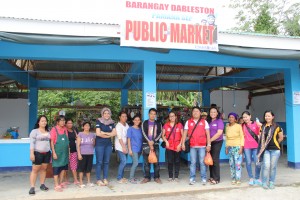
Lanao del Norte –The Sustainable Livelihood Program (SLP) of the Department of Social Welfare and Development will culminate its implementation on PAMANA in this province by December this year.
SLP is a multi-stakeholder program of the DSWD that intends to improve the standard of living of poor households identified under Listahanan especially the Pantawid Pamilyang Pilipino Program beneficiaries.
The program also implements special projects of the government such as the PAMANA or Payapa at Masaganang Pamayanan, a peace and development program of the government which aims to respond and strengthen resiliency to conflict by improving the socio-economic capacity of the communities and families in the covered areas.
In 2013, the 3-year program cycle commenced with a budget of P36 Million from the Office of the Presidential Adviser on Peace Process (OPAPP) allotted for the recognized PAMANA areas which are the municipalities of SND, Sapad, Munai, Pantar and Baloi Lanao del Norte.
With each cycle year, 122 barangays of the said municipalities are receiving the said budget allocation for their respective community projects not more than P300,000 each.
Mr. Rhandy Ladoroz, the SLP-PAMANA focal says, “The implementation of this project went through needle holes and rough edges since the covered areas are conflict affected. However, we are confident that this particular intervention has really left a mark in the communities since the identified projects are feasible and community driven”. “We are also thankful to the respective LGUs in their support and participation during the course of implementation”, he added. “We are hopeful that when this project ends, the community shall continue to endure our efforts and sustain the projects”, Ladoroz says.
Mr. Ladoroz also mentioned that a Productivity Incentive Fund of P50,000, shall be allocated to these communities for the sustainability of their respective projects.
To date, the program has implemented, 940 community projects which are mostly common service facilities such as solar dryers, rice and corn threshers, community stores and other post-harvest facilities.
Written by Jamila M. Taha, DSWD


